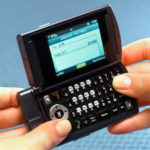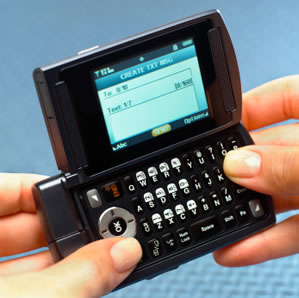
University of Maryland students who went 24 hours without TV, cell phones, MP3 players, and laptops during a recent study reported symptoms you might expect from someone struggling with substance abuse, including an “unbearable” need for electronic communication, persistent anxiety, and a frantic “craving for some technology.” The study’s findings have prompted some observers to ask: Are today’s students addicted to technology—and if so, what implications might this have for education?
The university’s International Center for Media & the Public Agenda (ICMPA) on April 21 released the findings of its study, “24 Hours: Unplugged,” which had 200 undergraduates go without access to any form of media for one day, even requiring study participants to leave their dormitory if a roommate was watching TV.
The students blogged about their technology detox afterward and compiled more than 100,000 words on the study’s web site, roughly the length of a 400-page novel. Responses varied from aggravation to frustration to isolation, which was especially keen for students without access to social media sites like Twitter and Facebook, or the ability to send dozens of text messages throughout the day.
“We wanted to make the students more thoughtful about the sea of news in which they swim,” said Susan Moeller, director of the ICMPA and a University of Maryland journalism professor. “It became absolutely common for students to make those kind of statements about how they felt [an addiction] to media. … It wasn’t just a rhetorical exaggeration.”
Read the full story on eCampus News.
- Lawmakers to colleges: No more social media prying - April 25, 2013
- Number of college applications affected by social media triples - October 9, 2012
- Gates Foundation supports college readiness apps - September 28, 2012



Comments are closed.